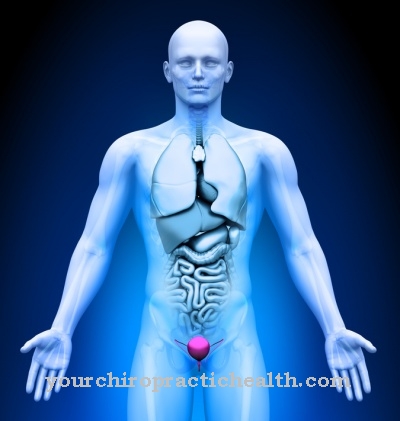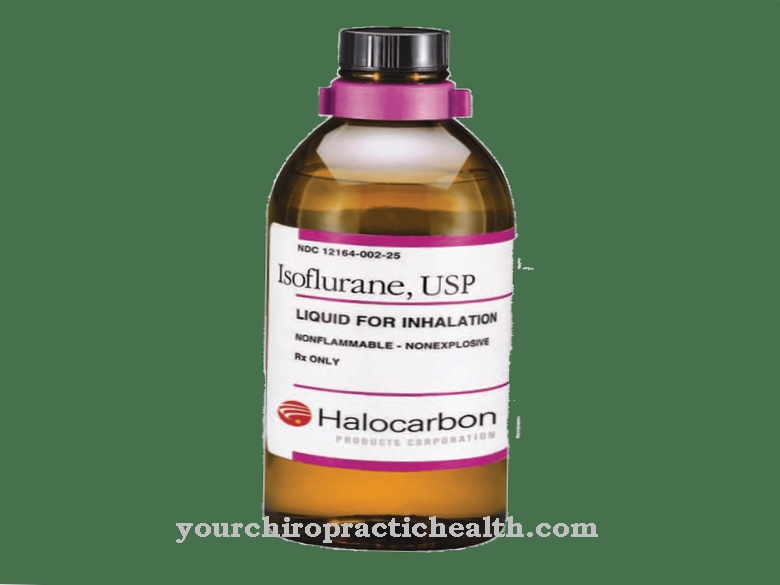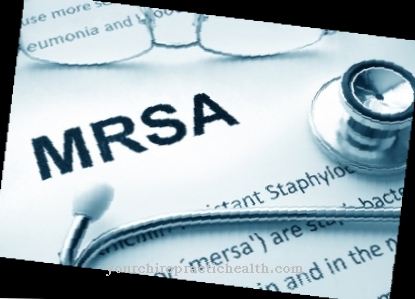Allicin arises in garlic (Allium sativum) from an enzymatic reaction when the plant's own tissue is destroyed. The sulfur-containing substance quickly decomposes into components that also have health-promoting effects. The best known is the lowering of cholesterol levels and blood pressure, but many other effects have been proven that can be directly or indirectly attributed to allicin.
What is allicin?

Allicin is a sulfur-containing compound that arises from the amino acid alliin, which is contained in garlic. Amino acids are a class of bio-organic nitrogen compounds that also include protein building blocks.
When garlic cell tissue is destroyed, alliin mixes with an enzyme that is located in cells other than alliin.
The enzymatic activity of the "allinase" converts alliin by splitting off allicin. This is how the active ingredient for which the leek plant is known is created when garlic is consumed or during preparation. The intense garlic smell is the result of spontaneous breakdown products from allicin.
Pharmacological effect
Allicin is proven to be a biological antibiotic. The antibacterial effect extends over a wide range of pathogens.
In addition, allicin is also said to have an antifungal (fungicidal) effect. Since fungal tissue consists of higher cells, allicin is a cell poison that can also be potentially dangerous to human cells. In practice, however, this is negligible, as will be explained below. The best-known effect of the substance, however, is the lowering of blood lipid levels, so allicin is said to lower the concentration of LDL cholesterol in particular.
According to common opinion, this fraction of blood lipids is mainly responsible for arteriosclerosis. Allicin is an unstable compound that generates a mixture of substances in the body. The biochemical effects of the secondary products are not yet known in detail, but scientists suspect further effects of garlic in this.
Allicin is said to be indirectly involved in fighting toothaches and lowering blood pressure. Allicin and its breakdown products are even under discussion as an aphrodisiac, based on the assumptions of ancient doctors. The lowering of the blood sugar level and an increase in physical fitness probably also result from the derivatives of allicin.
Medical application & use
Allicin is a recognized remedy against arteriosclerosis due to these effects on the metabolism. Preventing their secondary diseases such as heart attacks and strokes is one of the main areas of application for garlic extract. The versatile substance is also used for stomach cleansing, where allicin kills bacteria. Applied externally, an appropriate preparation can help against infections that are transmitted by parasites such as ticks. In a similar application, allicin helps against nail fungus and other mycoses.
The prophylactic effect against malignant tumors (cancer), which is ascribed to allicin and its oxidation products, is the starting point for pharmacological research. The aim is to use allicin in chemotherapy. The problem here is that allicin itself breaks down spontaneously and therefore only reaches the site of action in the organism in very small doses.
Therefore, scientists have tried to delay the release of allicin in the organism. Technologically, it has already been possible to transport allicin to certain tumor cells in animal experiments. The results give reason to hope to develop highly effective chemotherapeutic agents for humans, based on the main component allicin.
Risks & side effects
Allicin Excessive intake can cause slight intolerance in the gastrointestinal area. The same also applies to people with a specific intolerance to allicin. In particular, this should play a role in allergies. However, these are usually not serious complications.
Another side effect is negligible from a medical point of view: What is meant is the development of the typical garlic odor caused by the derivatives of allicin. Many people perceive this as unpleasant at best. The cytotoxic effect of allicin is also noteworthy. However, this cell-killing property cannot pose a threat to human health.
Because the rapid decomposition of the substance during the digestive process largely prevents aggressive reactions in the metabolism. The positive effects are therefore offset by very weak side effects. That is why garlic has been a popular remedy since ancient times, mainly due to allicin.
























.jpg)



